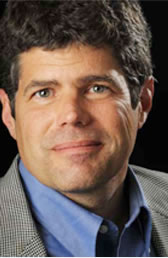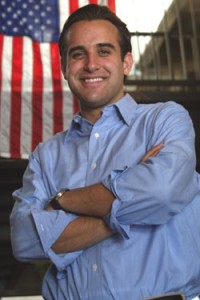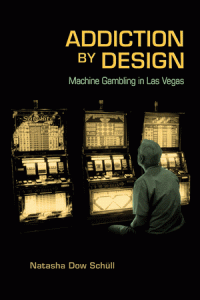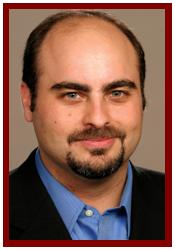By Jeff Smith, on Mon Jan 30, 2012 at 12:30 PM ET Given the RP Debate two weeks ago on legalizing marijuana, Jeff Smith advises the RP Nation to check out an excellent piece from this week’s The New Yorker: “Mass Incarceration and Criminal Justice in America”
A prison is a trap for catching time. Good reporting appears often about the inner life of the American prison, but the catch is that American prison life is mostly undramatic—the reported stories fail to grab us, because, for the most part, nothing happens. One day in the life of Ivan Denisovich is all you need to know about Ivan Denisovich, because the idea that anyone could live for a minute in such circumstances seems impossible; one day in the life of an American prison means much less, because the force of it is that one day typically stretches out for decades. It isn’t the horror of the time at hand but the unimaginable sameness of the time ahead that makes prisons unendurable for their inmates. The inmates on death row in Texas are called men in “timeless time,” because they alone aren’t serving time: they aren’t waiting out five years or a decade or a lifetime. The basic reality of American prisons is not that of the lock and key but that of the lock and clock.
That’s why no one who has been inside a prison, if only for a day, can ever forget the feeling. Time stops. A note of attenuated panic, of watchful paranoia—anxiety and boredom and fear mixed into a kind of enveloping fog, covering the guards as much as the guarded. “Sometimes I think this whole world is one big prison yard, / Some of us are prisoners, some of us are guards,” Dylan sings, and while it isn’t strictly true—just ask the prisoners—it contains a truth: the guards are doing time, too. As a smart man once wrote after being locked up, the thing about jail is that there are bars on the windows and they won’t let you out. This simple truth governs all the others. What prisoners try to convey to the free is how the presence of time as something being done to you, instead of something you do things with, alters the mind at every moment. For American prisoners, huge numbers of whom are serving sentences much longer than those given for similar crimes anywhere else in the civilized world—Texas alone has sentenced more than four hundred teen-agers to life imprisonment—time becomes in every sense this thing you serve.
Click here to read the full article, “Mass Incarceration and Criminal Justice in America”
By John Y. Brown III, on Mon Jan 30, 2012 at 12:00 PM ET  Know your strengths and your calling. Know your strengths and your calling.
Just as importantly, know your weaknesses and limitations. For your sake —and because it’s the right thing. And because it works out best for all concerned.
Nine years ago I was entering my last year as secretary of state (term limited) and planning to run next for state auditor. It was the next logical step for me politically, no one else had filed on the democratic side and the filing deadline was approaching.
But there was a problem. I didn’t want to be state auditor.
It wasn’t an intellectual resistance. It was a gut feeling that it wasn’t a good fit for me….that I would have a hard time putting my heart into the job. I liked to build things and wasn’t a natural investigator. And accounting was never my strong suit.
Mostly, though, I didn’t want to run for political office just to stay in the game. I had watched other politicians run for office when they didn’t have their heart in it. And despite being favorites to win, they seemed always to lose.
Why? I think voters sensed they didn’t have the “fire in their belly” and that the office they were seeking was more of a place holder for something better in the future. I told myself I would never let that happen to me. But now I was faced with the ultimate test.
What would I do?
Read the rest of…
John Y’s Musings from the Middle: Know Your Calling
By Jason Grill, on Mon Jan 30, 2012 at 11:30 AM ET  Jason Grill: Rebuttal #3 Jason Grill: Rebuttal #3
[The RP’s Provocation, Artur Davis’s Rebuttal #1; Ron Granieri’s Rebuttal #2; Natasha Dow Schüll’s Analysis; Spectrum Gaming Group’s Analysis]
Lets change the direction of this debate a little bit.
It’s all about sports gambling ladies and gentlemen.
As a member of the Missouri House of Representatives, I sponsored a resolution calling on Congress to repeal the Federal Professional And Amateur Sports Promotion Act of 1992 (PASPA). The 1992 law prohibited all but four states from offering sports gambling. The four states exempted from this act were Delaware, Montana, Nevada, and Oregon.
Missouri currently allows twelve gambling casinos in the State. They should have the option to put a sportsbook in each one of them. The federal law is outdated and is truly discriminatory towards 46 other states. These states should have the option to share in the major economic and revenue benefits that sports betting can provide.
Guess what…The Super Bowl is this week. Lets take a look at a few stats…
Read the rest of…
The RPs Debate Gambling: Jason Grill Rebuts
By RP Staff, on Mon Jan 30, 2012 at 10:30 AM ET Spectrum Gaming Group’s Market Analysis
[The RP’s Provocation, Artur Davis’s Rebuttal #1; Ron Granieri’s Rebuttal #2; Natasha Dow Schüll’s Analysis]
The RP referred in his Provocation to a recent market analysis sponsored by the Kentucky Chamber of Commerce, a pro-gaming organization. Below is an excerpt from the report, as well as a link to its Executive Summary:
Based upon our assumed parameters, we developed a detailed market analysis and casino project assumptions that were based on site visits, the competitive landscape, owner interviews and our experience. Spectrum concludes that the eight Kentucky casinos as described in this report would produce the following statewide outcomes (first-year numbers are assumed to be for 2015):
• First-year full-time equivalent direct jobs of as many as 10,953, with a payroll of $289.3 million.
• First-year statewide total direct, indirect and induced jobs of 20,471 (non-farm, but inclusive of equine). This excludes any government jobs that might be created.
• The eight prospective casinos would generate first-year gross state product of $1.737 billion and first-year total personal income of $1.009 billion.
• The 30-month construction period would create 4,297 full-time-equivalent construction jobs with a total payroll of $338 million.
• First-year gross gaming revenue of $1.14 billion. • First-year gaming tax of $464.7 million, and total state tax receipts from all sources of
$541.3 million, including funds dedicated to horse-racing industry programs. • One-time license fees of $266 million. • First-year funds for horse-industry programs of $164.6 million:
o $152.5 million for thoroughbred and standardbred purses o $10.5 million for the Equine Breed Authority o $1.6 million for Quarter Horse Purse Program
• Funds dedicated to the racing industry would generate an average of 2,861 additional jobs in the equine sector each year over the first three years of casino operations, with an estimated 1,500 jobs created in the first year.
Click here to read the full Executive Summary of the report.
By RP Nation, on Mon Jan 30, 2012 at 10:00 AM ET Natasha Dow Schüll: Analysis
[The RP’s Provocation, Artur Davis’s Rebuttal #1; Ron Granieri’s Rebuttal #2]
A RP Nation reader who opposes expanded gaming recommended the pioneering work of MIT Professor Natasha Schüll. An op-ed of Schüll’s from The Washington Post — written at the time that Maryland was considered expanded gaming — is excerpted below, and a link to her new book, Addiction by Design, is provided as well:
All forms of gambling are not created equal. Marylanders should take this into account when deciding how to vote in November’s referendum on slots.
My research as a social anthropologist has been focused on a dramatic turn that has taken place in recent decades from social forms of gambling played at tables to asocial forms played alone at video terminals. If voters endorse the proposal to alter Maryland’s constitution to allow slot machines at racetracks, residents will be exposed to devices that have been carefully designed to make them lose as much as possible.
It’s important for voters to understand how these machines work. Every feature of a slot machine — its mathematical structure, visual graphics, sound dynamics, seating and screen ergonomics — is calibrated to increase a gambler’s “time on device” and to encourage “play to extinction,” which is industry jargon for playing until all your money is gone. The machines have evolved from handles and reels to buttons and screens, from coins to credit cards, from a few games a minute to hundreds. Inside, complicated algorithms perform a high-tech version of “loading the dice” — deceptions no self-respecting casino would ever allow in table gambling. The machines are designed to exploit aspects of human psychology, and they do it well. In the eyes of the gaming industry, this may look like success, but it comes at great expense for gamblers.
Click here to read Schüll’s entire Washington Post op-ed.
 Click here to pre-order Schüll's forthcoming book, Addiction by Design
By Ronald J. Granieri, on Mon Jan 30, 2012 at 9:30 AM ET  Ron Grainieri: Rebuttal #2 Ron Grainieri: Rebuttal #2
[The RP’s Provocation, Artur Davis’s Rebuttal #1]
Artur raises a crucial point, whether the money raised from gambling will really make that much of a difference, that I think deserves close attention.
As the proud product of parochial schools whose existence depended upon Bingo, I am well beyond worrying about the moral implications of using proceeds from vice to pursue virtuous ends. Considering how governments at various levels already derive revenue from other vices, such as tobacco and alcohol, as well as already existing lotteries, I view the moral debate on legalized and regulated gambling as forced and ultimately irrelevant. It is far too late for the brothel denizen known as the treasury to wish to regain its virginity.
I will say that I do not like the fact that the gambling industry has succeeded in re-christening (re-luciferizing?) itself as the “gaming” industry, which I consider a classic example of transparent mendacious marketing. It is supposed to make the activity appear somehow wholesome and entertaining, and to encourage us to avoid thinking about the whole, “most of the people who play lose their money” angle. Spare me. People play games like Missile Command (the greatest video game in the history of entertainment) for the fun of the game, and are happy to know that every quarter so spent is lost forever. Slot machines only exist because people are gambling on the hope of winning more money. To pretend otherwise is an insult to the intelligence of anything with a pulse.
By Stephanie Doctrow, RP Staff, on Mon Jan 30, 2012 at 9:15 AM ET Yoga is a physically and mentally rewarding practice, but what dangers exist when it’s not led by a professional instructor? [CNN]
By Artur Davis, on Mon Jan 30, 2012 at 9:00 AM ET  Artur Davis: Rebuttal #1 Artur Davis: Rebuttal #1
[The RP’s Provocation]
I think Jonathan makes the progressive case for gambling probably as well as I’ve seen it made–its a substantial upgrade from the libertarian boilerplate that gambling is a vice no loftier, no more shameful, than say, cigarette smoking, and that it’s not government’s job to regulate simple vice; its better than the “low wage casino jobs beat no jobs” spiel that drives progressives to embrace gambling in high unemployment communities. The fact is that government has been in the business of outlawing sin for a long time, particularly those of the addictive variety. Meanwhile, the jobs case for casinos falters on the ground that heavy gambling counties, especially in the Deep South, have unemployment rates equal to or worse than the gambling free zones next door to them; if anything, the casinos seem to chase a class of low end retail jobs from certain neighborhoods. Jonathan relies, instead, on a hard-core fact of politics: if raising taxes is untenable in most state capitals, and if massive service cuts are too draconian, gaming revenue is often the last option standing. If it sounds defeatist, its still proved powerful, and explains why conservatives in the Alabamas and Mississippis are torn over gambling, and rarely support banning it altogether, and why progressives are relatively untroubled by its regressive tendencies and the case that gaming dollars are a kind of extra sales tax on the poor.
So, without being an absolutist on the subject, I have two lingering doubts. One is that the gaming industry is a grossly inefficient market that uses its political clout to remain that way. In Alabama, rather than gravitate toward tourist destinations like the Gulf Coast, or the populous cities that could supply a steady labor base, it has concentrated in low end communities off the beaten path that have a much weaker core of employable adults. Even some of the communities that desperately want casinos struggle to get them or keep them. Ordinary rules of supply and demand don’t exist, and that means, invariably, that influence is be exercised to block some operators and to protect others. Its a lucrative prescription for corruption, and not surprisingly, the industry’s major benefactors found their way into a major, bipartisan public corruption prosecution last year.
Read the rest of…
The RPs Debate Gambling: Artur Davis Rebuts
By Jonathan Miller, on Mon Jan 30, 2012 at 8:30 AM ET Over the past three weeks, we’ve launched a new tradition at The Recovering Politician: a great virtual debate on the issues of the day among our recovering politicians; with provocations, rebuttals, responses, and defenses. Our first discussion focused on presidential leadership; our second on legalizing marijuana; and our third, Tim Tebow.
This week, the RP stirs up the mix with another controversial subject: the morality of gambling The RP starts off with his provocative article from The Huffington Post. Tune in every half hour to read what other RPs have to say.
SPOILER ALERT: There will be fireworks.
The RP‘s Provocation:
It was one of those awkward, seemingly-endless moments that elicited pained winces from both secular liberals and those of us who believe that prayer is a sacred communication with God.
Rev. Hershael York stepped up to the Speaker’s lectern, before a televised joint session of the Kentucky General Assembly, purportedly to deliver the opening prayer. Instead, he launched into a blistering political diatribe, attacking Gov. Steve Beshear’s signature proposal to generate tax revenue by expanding gaming in the Commonwealth:
May [the Legislature] never resort to leveraging vice and avarice to pay our bills… May they not lead this state to share profits from an industry that preys on greed or desperation. Help us to foster salaries, not slot machines, to build cars and enable jobs, not license casinos and seduce the simple into losing what they have.
While York’s oration was as inappropriate as it was unsubtle, it certainly reflected a widely-shared worldview within the conservative Christian community: Gambling is immoral, and its creeping sprawl through Middle America should be contained.
Read the rest of…
The RPs Debate Gambling: The RP Provokes
By Grant Smith, RP Staff, on Fri Jan 27, 2012 at 3:00 PM ET
How much money does Warren Buffett’s secretary really make? [CNBC]
Why Bank of America will be the turn-around challenge of the century. [Fortune]
The pessimists are wrong: the future never looked so good. [Forbes]
|
The Recovering Politician Bookstore
|













